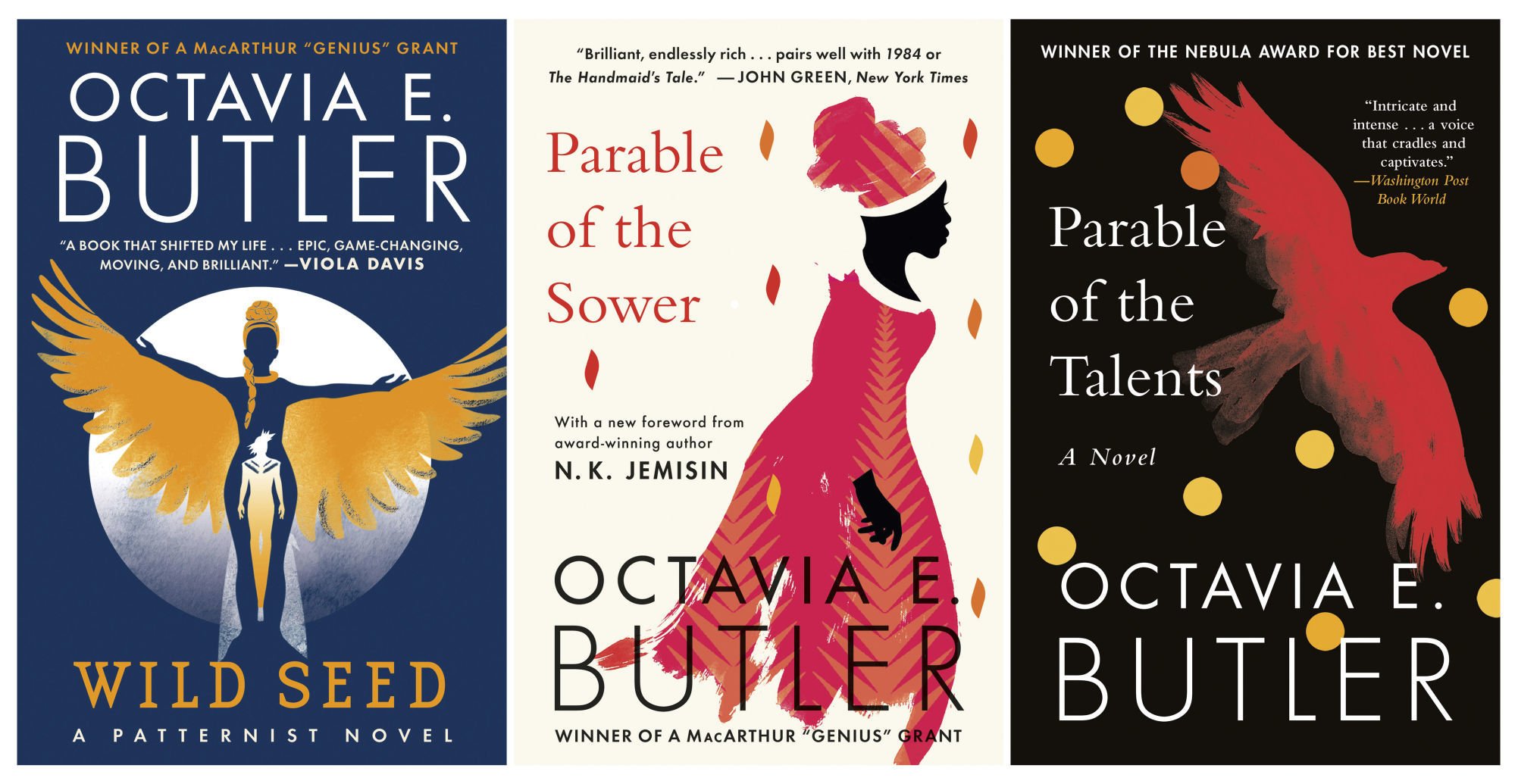

“One of my good habits that contribute to worldmaking now was bothering librarians a lot," Butler said in a 1985 speech. She continued to head to the stacks even after becoming a successful author. Octavia Butler honed her craft at public libraries.įor Butler, going to libraries was a regular affair-she not only used them for research but even wrote her first novel, 1976's Patternmaster, at the Central Library in Los Angeles. "The first was that 'Geez, I can write a better story than that.' And then I thought, 'Gee, anybody can write a better story than that.' And my third thought was the clincher: 'Somebody got paid for writing that awful story.' So, I was off and writing, and a year later I was busy submitting terrible pieces of fiction to innocent magazines.” 3.
Octavia butler books series#
“As I was watching this film, I had a series of revelations," Butler said during a 1998 talk at MIT.

Octavia butler books movie#
It was a 1954 movie called Devil Girl from Mars, which Butler saw when she was about 12 years old, that ignited the future author's interest in science fiction. A bad sci-fi movie inspired Octavia Butler to start writing. "I think writers use absolutely everything that happens to us, and surely if I had had a different sort of childhood and still come out a writer, I'd be a different kind of writer," Butler told InMotion magazine. Eventually, she started writing herself, penning her first stories when she was 10 and turning her attention to science fiction three years later. Still, her dyslexia didn't stop her from reading the discarded books her mother brought home from work. She was also dyslexic, which made schoolwork difficult. She was a shy and awkward kid who was bullied for being so tall. Her father died when she was a child, and she was raised by her mother (also named Octavia), who earned a living working as a maid Butler would accompany her to work. Octavia Butler didn't have an easy childhood. I wrote myself in, since I’m me and I’m here and I’m writing.” Even if you’ve read all of her work, there are still some things that you might not know about Octavia E. "The only Black people you found were occasional characters or characters who were so feeble-witted that they couldn’t manage anything, anyway. “When I began writing science fiction, when I began reading, heck, I wasn’t in any of this stuff I read," Butler told The New York Times in 2000. Through her books, which include Kindred, Fledgling, Parable of the Sower, and Survivor, Butler tackled issues such as climate change, gender inequality, and racial injustice. A Black woman writing science fiction-a genre typically dominated by white men-she became the first science fiction writer to win a prestigious MacArthur Fellowship in 1995. Butler was one of the most significant literary figures of the 20th century. Born in Pasadena, California, on June 22, 1947, Octavia E.


 0 kommentar(er)
0 kommentar(er)
